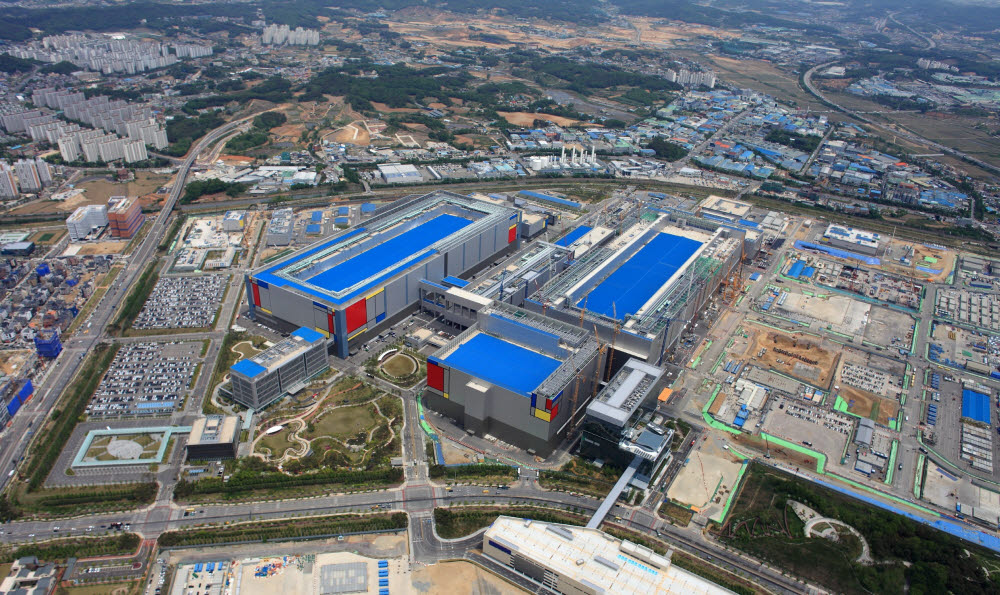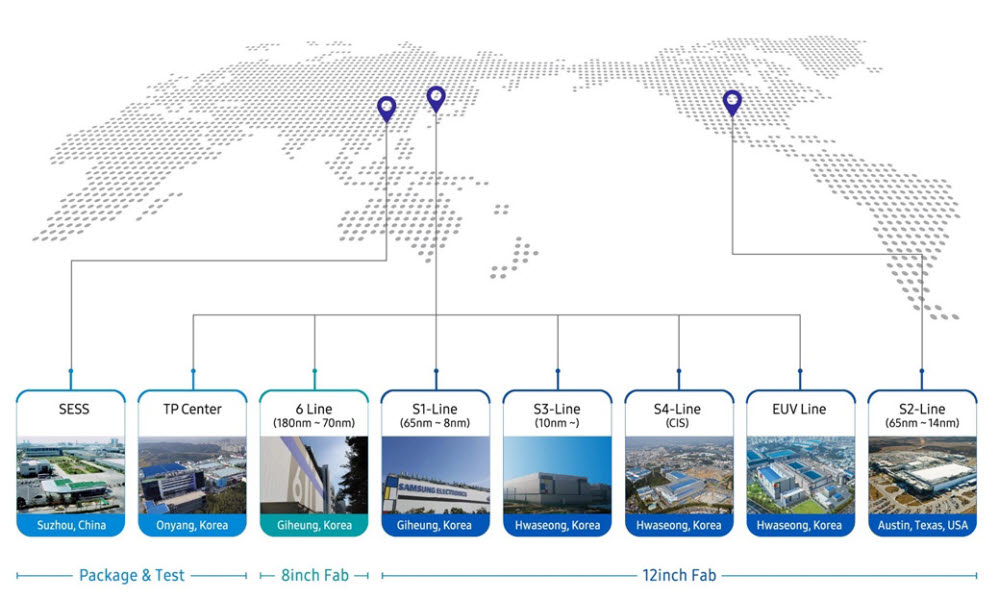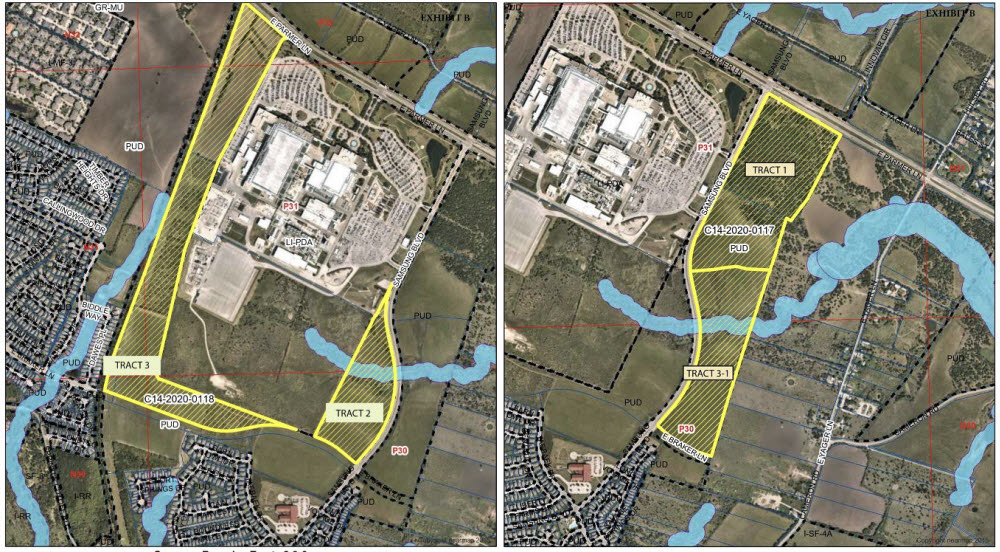[Korea IT News] [Industrial Report] The demand for semiconductors is soaring...'K-Foundry' has a high growth opportunity (Mar 23, 2021)
[Industrial Report] The demand for semiconductors is soaring..."K-Foundry" has a high growth opportunity
![[산업리포트] 반도체 수요 폭증…'K-파운드리' 고성장 기회 잡았다](https://img.etnews.com/photonews/2103/1395426_20210323170156_392_0012.jpg)
#The shortage of foundry supplies is rocking the global industry beyond semiconductors. Foundry refers to a business that makes semiconductors for a company that designs chips (Fabless). As more semiconductors are needed due to rising demand for non-face-to-face semiconductors since last year's Corona 19 Fandemics, foundry companies are struggling to meet surging orders. The foundry market is expected to continue to grow. According to market research firm Omdia, this year's foundry market is expected to reach 73.8 billion dollars, up 8.4 percent from last year's 68.1 billion dollars.
There are four companies in Korea: Samsung Electronics, DB HiTec, SK Hynix System IC, and Key foundry. Industries are paying keen attention to what strategies these companies will implement in response to recent supply shortages. Therefore, we will analyze the characteristics and strategies of domestic foundry companies and point out the direction that needs to be taken compared to Taiwan's industrial ecosystem, which has more than 50% of the global foundry market share.
◇Samsung Electronics is challenging 'System Semiconductor 2030' with its cutting-edge processes and production capabilities.
There are four companies in Korea: Samsung Electronics, DB HiTec, SK Hynix System IC, and Key foundry. Industries are paying keen attention to what strategies these companies will implement in response to recent supply shortages. Therefore, we will analyze the characteristics and strategies of domestic foundry companies and point out the direction that needs to be taken compared to Taiwan's industrial ecosystem, which has more than 50% of the global foundry market share.
◇Samsung Electronics is challenging 'System Semiconductor 2030' with its cutting-edge processes and production capabilities.
 <Samsung Electronics Pyeongtaek Campus Air Photography>
<Samsung Electronics Pyeongtaek Campus Air Photography> Samsung Electronics is the dominant player in both size and sales among South Korean foundry companies. In particular, it is the only South Korean company that has secured foundry processes for 12-inch wafers. Technology is also the world's top class. Samsung Electronics introduced 7-nano Extreme Ultraviolet (EUV) process for the first time in the world at the end of 2018.
Samsung Electronics is recently stepping up efforts to extend its 5-nano foundry line with its second plant in Pyeongtaek. It is heard that it is planning to secure 48,000 5-nano process (48K) per month based on 12-inch wafer by the end of this year. Based on the EUV technology, Samsung Electronics aims to catch up with Taiwan's TSMC, the No. 1 foundry company, by 2030.
Samsung Electronics is recently stepping up efforts to extend its 5-nano foundry line with its second plant in Pyeongtaek. It is heard that it is planning to secure 48,000 5-nano process (48K) per month based on 12-inch wafer by the end of this year. Based on the EUV technology, Samsung Electronics aims to catch up with Taiwan's TSMC, the No. 1 foundry company, by 2030.

<Status of Samsung Electronics Foundries. Data = Samsung Electronics>
Samsung Electronics also has 12-inch fabs on Mars and Austin in the U.S. According to the securities industry, Samsung Electronics' 12-inch foundry production capacity was about 250,000 units (250K) per month until last year, but it is planning to increase its production capacity to 330,000 units (330K) by the end of this year.
 <The area where Samsung has applied for a change of purpose. The white buildings are Austin Fab and Facility buildings, and the areas marked with yellow lines are newly applied."Source: Austin Municipal Documents">
<The area where Samsung has applied for a change of purpose. The white buildings are Austin Fab and Facility buildings, and the areas marked with yellow lines are newly applied."Source: Austin Municipal Documents"> Industries are most interested in whether or not they will invest in Samsung Electronics' Austin plant. As TSMC recently decided to invest in 5-nano lines in Arizona, there are predictions that Samsung Electronics will invest in EUV fabs in Austin, which is focused on 14-nano processes. In fact, Samsung Electronics recently purchased additional land near its Austin plant and applied for a change of purpose in Texas.
Samsung Electronics is also the largest in South Korea in the 8-inch foundry sector. It has production capability of 300,000 8-inch wafers centered on Giheung plant. It is going to produce various system semiconductors such as Power Semiconductor (PMIC) and Display Driver Chip (DDI).
Samsung Electronics is also working hard on packaging solutions. Various next-generation package technologies such as PLP (Panel Level Package) are being developed at TSP (Test & System Package) in DS division. It is predicted that cooperation with many South Korean semiconductor packaging and testing companies will also increase.
Samsung Electronics is also operating a program to secure foundry ecosystem. In Samsung's foundry ecosystem called Design Solution Partner (DSP), 14 companies including AD Technology, CoAsia, GAONCHIPS, Semi-Five, and HanaTec will provide various chip design solutions to Samsung Electronics' foundry customers.
Samsung Electronics is also the largest in South Korea in the 8-inch foundry sector. It has production capability of 300,000 8-inch wafers centered on Giheung plant. It is going to produce various system semiconductors such as Power Semiconductor (PMIC) and Display Driver Chip (DDI).
Samsung Electronics is also working hard on packaging solutions. Various next-generation package technologies such as PLP (Panel Level Package) are being developed at TSP (Test & System Package) in DS division. It is predicted that cooperation with many South Korean semiconductor packaging and testing companies will also increase.
Samsung Electronics is also operating a program to secure foundry ecosystem. In Samsung's foundry ecosystem called Design Solution Partner (DSP), 14 companies including AD Technology, CoAsia, GAONCHIPS, Semi-Five, and HanaTec will provide various chip design solutions to Samsung Electronics' foundry customers.
The rest is omitted.....
By Reporter Kang Hae-ryeong kang@etnews.com

